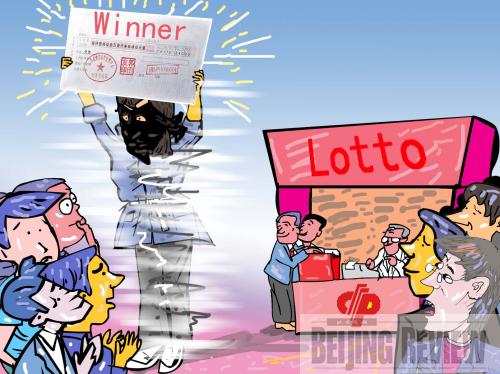|
 |
|
LI SHIGONG |
This June, while China waited to see who were the lucky punters to have bought the nine winning tickets in the Dual-Colored Ball lottery worth 33 million yuan ($4.84 million), they didn't expect to find that the lottery computer system had been hacked. Police in south China's city of Shenzhen reported on July 8 that a software engineer surnamed Cheng had broken into the local lottery database. In the process he manipulated the system to produce lottery tickets with winning numbers.
Although the hacker has been arrested, public concern remained over the lottery's credibility.
As an important means to improve the credibility of China's lottery industry, the call for lottery information transparency is growing stronger. Lottery buyers demand issuers use the practice of the United States as a reference. The Freedom of Information Act of the United States stipulates that the basic information of lottery winners must be made known to the public.
However, the Regulation on Lottery Administration of China, effective as of July 1, says just the opposite. Lottery ticket issuers must keep all winners' personal information confidential, and any violation of this rule assumes legal liability, says the regulation.
With the many cases of lottery fraud in recent years, there have been strong arguments against this confidentiality clause. Those opposed think that excessive protection of winners' personal information is depriving others who have bought lottery tickets of the right to know. They also worry that lottery issuers might also escape public scrutiny in the name of respecting the privacy of lottery winners.
Right to know
Lu Zhijun (Southern Metropolis Daily): Details of the lottery fraud in Shenzhen needs to be further investigated and revealed. On the other hand, it should push lottery issuers to move toward bigger transparency. I think it is imperative to disclose lottery winners' identity as part of the efforts for lottery transparency.
The huge jackpot is available by tens of millions of lottery ticket buyers, who are entitled to know where all the money is spent, and to know the identity of the lucky people who win the money. It is just like us taxpayers having the right to know how the government spends our money. Some might say that publicizing lottery winners' personal information violates privacy. But take a look at the practice in European countries and the United States. These countries attach great importance to individual privacy, but information of lottery winners must be disclosed to the public and pictures of them being given the money should also be posted. That means lottery winners' information should not be categorized as private, but rather that the process should be transparent.
Furthermore, exposing winner's information can enhance supervision of the lottery industry. Buying lottery tickets is an individual act. But as long as the personal information of winners is kept confidential, it might provide an opportunity for fraud in the lottery industry.
Hang Cheng (China Business News): In the United States where the lottery business is thriving, the Freedom of Information Act states clearly that a lottery winner's name and the city he/she lives in must be made available to the public. Meanwhile, the citizens are entitled to check lottery-winner-related information with government departments, which is also a common practice in many other countries and regions.
It is because lottery winnings are not gained through individual labor or business operation, but from the vast number of people who buy lotteries. As a result, they have the right to know who gets their money. The so-called privacy of lottery winners should not be the reason to deprive the public's right to know.
In China, lottery winners can stay away from public attention due to rumors that they may face danger if their information is made public. It is undeniable that some people might covet the windfall of lottery winners. However, safety concern is common among the wealthy, but that does not necessarily justify the excessive protection of big lottery winners.
| 